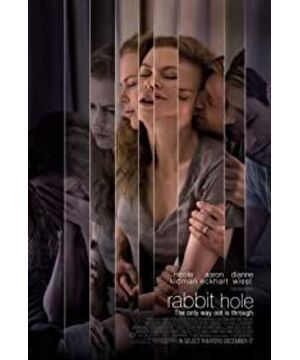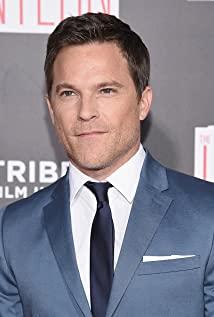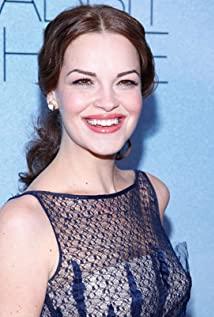(This line of words feels good!!!!!!!!!!!! Hahaha!!) It
seems casual but more than delicate collocation, floral silk scarves With a slender and fair neck, the blouse with ruffles and hollow fine lines is light and airy, and the sub-golden curly hair is left in two small sections, which are slightly designed to hang down to the shoulders. In the carmine red Mercedes Benz, she is dignified, has just the right beauty, and has a very popular label recently - middle class.
"Killing" released at the Venice Film Festival, like "The Rabbit Hole", is a story of a middle-class American family, but compared to the former, where conflict points and climaxes are one after another, Nicole's emotional changes can be said to be almost zero. The collapse was just silent tears and makeup in the car. Her quarrel is nothing more than leaving under the soft warm light after constant compromise. More often, this mother, who lost her son for eight months, always uses her thin arms to resist her emotional rupture, so powerful and so unquestionable.
A high level of education, stable and a lot of income, life taste and pursuit, house, car, children, garden, sunshine, these words come to mind when thinking of the middle class in the United States. After their son died, they chose mutual aid as a way of healing. The way to seek comfort and victory in the general unhappiness of the group sounds rational and fruitful, but in her eyes, the misery here seems boring and empty, magnifying other people's, replaying her own, and clinging to the memory, it is still the same A quarter of an hour, that lost. She didn't want to, and what she hoped in her heart was to look forward, to be positive and reasonable.
There are two main contradictions in the film, one is the choice of recalling and skipping, but the other is the conflict between understanding and misjudgment. The husband watched the light and shadow of his son's life alone late at night. The laughter and sunlight came from the narrow and distorted screen, which contrasted sharply with the silence and roughness of reality. The wife gave her clothes and toys to her sister and her pet dog, pretending that she was full of plans, and her heart was full of extraordinary. In the way of dealing with crises and loss, men tend to indulge in them, and they may indulge themselves in the dream of their beloved son because they regard their ability to handle crises and self-control as being too high. On the contrary, the wife's role, as a mother's past, makes her more cautious, knowing the consequences if she is not sober. Her jumping away shows an excellent way of self-confidence after calm thinking under the strong appearance. When the two people's values run-in and collide, it is a compromise after a slight debate between the two sides, rather than a life-and-death imposition. The so-called middle class can probably be seen from here.
The other pair of contradictions is more fully reflected in the relationship between the characters, the heroine and the impetus of the accident, the relationship between the male high school students. Light, bright and even warm.
She has only experienced the role of a mother for a few months, and the brilliance of love is obviously not exhausted, and the residual heat is pinned on this inappropriate boy, the criminal and perpetrator who has taken more than her beloved comfort to a certain extent. The green grass in the afternoon and the long-term loneliness and guilt penetrate into each other and understand each other. The dependence between the two is less of the love factor, and more of a simple and close connection. The boy's research, or hope, about parallel worlds also gave her another form of comfort, and it was receptive, soft, and not didactic or purposeful. His original comic has the same name as the film, and the character who also lost a loved one also contributes to this bridge of communication. Could this imagery in Western literature -- the rabbit hole, the passage to another world -- be a romantic escape. She wants to have a complete family by herself in a parallel world. Such absurd but undisputed logic gives her a poetic, middle-class style of shelter, so the power of a sentence "I understand" is heavy and immeasurable.
The misjudgment came from the mother, who also lost her son more than ten years ago, making her think that it can be narrated, and the capital of preaching has increased. The same disease and mutual pity have the wrong time, and the shared responsibility is too sensational. Her mother's unspoken pain of bereavement not only did not accompany the tears, but caused her disgust and disgust. I can't stand the rough contrast between my son's innocence and his deceased brother's alcoholic and gambler temperament. I feel that although the settings are similar, they cannot be classified due to the difference in emotions. The mother's misunderstanding may be deliberate in her sensitive eyes, especially when she talks about the tragic ending of the Kennedy family when she is drunk. In her eyes, this is a naked provocation of her emotional tolerance and support.
Drama is not the selling point and highlight of the film, but the emotional tension of the characters may need to be reflected one by one in conflicting situations. The golden award actress does not only have a middle-class appearance or blue and calm eyes, the grasp of slender fingers, the curvature of the corners of her mouth, and the proportions and ups and downs of language under different expressions are obviously three points.
It is worth mentioning that the time set in the film is eight months after the loss of the child. It is neither long nor short. There is no grief at the beginning, no stepping out of the shadows and laughing at life in the future. It can be said that it is the family's. crisis point. The attitude that needs to be decided, the future and the solidity of the marriage are all dealt with at this time of consolidation. And at this time, it is probably easy to reflect the difference of middle-class families, because everyone has great joy and great sorrow, but the complexity and subtlety are magnificent, which is probably the unique invisible asset of this class.
View more about Rabbit Hole reviews











